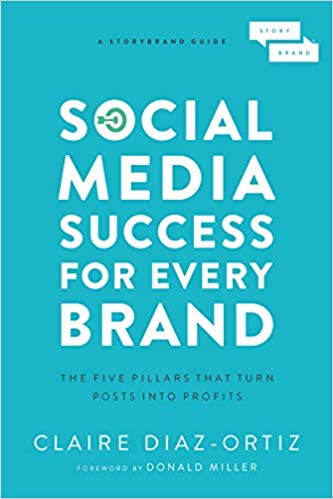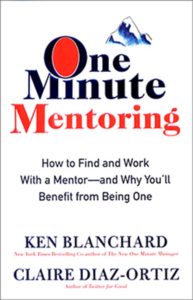Last year, I read some darn good books. Of the 135+ books I plowed through, one of my favorites was Brene Brown’s Dare to Lead: Brave Work, Tough Conversations, Whole Hearts.
Business books can be boring. (I write them, I know.) This one was definitely not boring.
Although I’ve loved her past work, this book stands out to me due to one singular exercise in it that was a game changer. It’s had me so pumped up, in fact, that I’ve made clients, parents, husbands and unsuspecting children (OK she’s four so I did it for her) take part. Most have raved.
Here’s what it is and here’s why I want every leader in an organization or home to do it, ASAP.
Then, get your family members and team to do it. Understanding what you value is just as important as understanding what those around you value as well.
The Values Exercise that Can Transform Your Year
Overview:
It’s easy to think you know what your values are in your life. Unfortunately, it’s easy to actually be either completely wrong or off just enough that the end result is you are steering your precious boat of life with a Barbie toothbrush. This exercise will finally clarify what your actual values to help you make better decisions.
Remember, these are your values for your current season of life — not tomorrow or yesteryear.
How to Do it:
1. Go here. Print out this sheet of paper because you want to do this on paper because paper makes your brain think better. (That’s a bold summary of facts by important brain scientists writing about the messed up things the digital world does to our brain. Just go with it.)
2. On the sheet of paper, you’ll see a long list of a lot of words. Read through these words. If there are words missing that you think need to be there, write them in. “Abundance” is a value not on there. Maybe that matters to you. “Flossing” might be another. The ultimate goal is to narrow it down to 1-2 core values that are the most meaningful to you in this season of life. Brene says most people end up choosing 10-15 values their first time through the list. I’ve seen this true with the folks I’ve done this with. Take time and go through the list to get it down to 10-15 values to start.
3. Now start winnowing down your 10-15 values to 1-2 values. Most people I have done this with find this is hard, and end up stuck on more than 2 values even after a lot of head wagging. If that is your situation, do this:
Try to think of groupings that help you to:
a. eliminate certain values entirely
OR
b. determine if a value is actually expressed THROUGH another value.
For example, let’s say you have both community and connection on your list of 10-15 values. You may realize they mean similar things to you. Figure out which is a better representation of your true value and eliminate the other. Which feels better?
In another example, let’s say you have equality and spirituality. Is one of these values actually expressed through the other? Is your commitment to equality actually driven by your overarching value of spirituality? If you took away equality would it still be there WITHIN spirituality?
Then think if any of the things on the list are really important but actually aren’t drivers of how you behave either in an aspirational way or in real life. For example, does desire for the value of financial stability drive you more than desire for the value of fun? At the end of the day do you say you want to be financially stable but realize that it’s more important to you to be fun-employed?
I believe the values of family and health are common examples of this.
Brene says family is one everyone feels they have to put it on because of course it’s important (it’s my mom! it’s my kid!), but it may not be the ultimate driver for how many people make decisions at the end of the day. The same goes for health. A client I did this with said, well I have to put health on because without that nothing matters, right?
Yes and no. Season of life is also critical.
For example, if things are relatively OK in a particular area it may not need to be a value right now. Someone I knew made one of his values family because his child is really going through something that year that had to be front and center in his decisions. If you’re dealing with a health crisis or a long-term issue you want to prioritize solving, making it all about health might be exactly what you’d want to do.
If you still have more than 1-2 values, then pare these down into tier 1 values and tier 2 values. (Although this is not suggested in Brene’s original exercise, I think it’s a really valuable addition and it’s something I recommend.) Think 2 levels of hierarchy.
For example, is wealth important but you realize it doesn’t belong as your top value because if it was you would make career choices you’re not willing to make? What other values are really secondary to others?
I’m a big fine of life optimization and growth (spoiler: one of my top 2 values) and I can say without a doubt that I haven’t done an exercise in more than a year that I have found so valuable. I’m betting you just may love it also.
Share with me your values below. I’ll respond with my other top 2 value!
———-
About Claire:
Claire Diaz-Ortiz (@claire) is a bestselling author, speaker, and advisor who was an early employee at Twitter. Named one of the 100 Most Creative People in Business by Fast Company, she holds an MBA and other degrees from Stanford and Oxford and has been featured widely in print and broadcast media. She writes a popular business blog at ClaireDiazOrtiz.com and is the author of eight books that have been published in more than a dozen countries.
Disclaimer: This post contains affiliate links but I’m 100% honest in my blinding love for this book.




